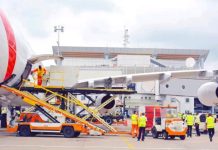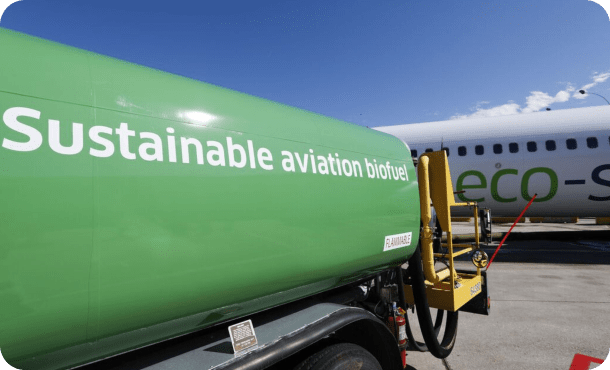The Federal Government of Nigeria is accelerating efforts to transition its aviation sector towards cleaner, sustainable fuels, as announced during the 2nd Consultative Stakeholders Engagement on Sustainable Aviation Fuel (SAF), Low Carbon Aviation Fuel (LCAF), and other cleaner energy sources held in Abuja. The event gathered key aviation stakeholders to discuss the development and deployment of environmentally friendly fuels as part of the country’s strategy to reduce greenhouse gas emissions and boost economic growth.
Festus Keyamo, Minister of Aviation and Aerospace Development, emphasized the government’s commitment to setting clear targets for SAF and LCAF adoption. He pointed out that technical studies have identified SAF as a key solution for reducing emissions in international aviation. Keyamo underscored the need for partnerships with stakeholders and international agencies, including the European Union Aviation Safety Agency (EASA), to fast-track SAF development in Nigeria. “EASA is here to support Nigeria in deploying SAF and other cleaner energy options for aviation, fostering sustainable growth and job creation,” he said.
Representing the Nigeria Civil Aviation Authority (NCAA), Director-General Capt. Chris Najomo highlighted ongoing collaborative efforts to identify sustainable feedstocks for SAF production. He expressed optimism about local resources supporting fuel production at competitive prices, potentially leading to a more sustainable and economical fuel option. “Our goal is to ensure the aviation sector’s fuel sources are both clean and cost-effective,” Najomo noted.
Dr. Nkiruka Maduekwe, Director-General of the National Council on Climate Change, emphasized that stakeholder engagement is essential for successful adoption of SAF. “This is a co-creation process that helps all parties understand SAF and explore alternatives for Nigeria’s socio-economic development,” she stated, adding that continuous dialogue and technical support are vital for building a resilient energy sector. Maduekwe acknowledged the EU’s role in supporting Nigeria’s aviation sector transition towards sustainability.
The government’s roadmap aims to position Nigeria as a leader in cleaner aviation fuels, aligning with global environmental goals and addressing climate change.













